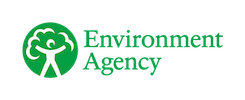Citizens’ Jury for Windermere Catchment (Cumbria) - Information page
Overview
The Rethinking Water Citizens’ Jury was put together by the Environment Agency and a Local Advisory Group working with the Involve Foundation; an independant charity, who acted as the main point of contact for panel members throughout the process.
The Panel, which took place over four days in March 2022, debated local issues, shared ideas and questioned experts on all aspects of the water environment in the Windermere catchment. This project brought together people from all walks of life, selected to be representative of local communities demography, shared information with them and asked them to produce recommendations to help shape discussions and decisions about the future management of the catchment.
Panel members were independently selected from applicants who responded to letters of invitation. These letters were sent to five thousand randomly selected addresses, from the Royal Mail database, within communities local to the lake.
The Panel were tasked with examining how communities and individuals engage with the Lake. The local advisory group asked the Panel to consider ‘How do we do more to improve water quality in the Windermere Catchment whilst sustaining our communities and the economy?’
The Windermere Panel’s Local Advisory Group was made up of a range of organisations from public, private and charity sectors as follows:
- ACT (Actions with Communities) in Cumbria
- Cumbria Local Enterprise Partnership
- Environment Agency
- Freshwater Biological Association
- Lake District Foundation
- Lake District National Park Authority
- National Farmers Union
- National Trust
- South Cumbia Rivers Trust
- South Lakeland District Council
- United Utilities
As well as advisory group organisations the Windermere Panel heard perspectives and evidence from Cumbria Tourism, Cumbria Wildlife Trust, University of Cumbria, Swim the Lakes (a local business), and Windermere Lake Recovery Community Interest Company to ensure a broad and balanced basis for their exploration of key issues, potential future challenges and changes to the lake and its surrounds. Finally, they produced recommendations that will be used to guide the future of managing water for us and our partners.
The findings, in the form of recommendations written and recorded by the panel members - Video of the recommendations form Windermere
A summary of the final six recommendations from the Windermere Citizens’ Panel were:
- Empower Organisational Action - Many organisations involved; collaboration is key. Recommend one organisation urgently appointed lead body.
- Education and Enforcement about Pollutants - Education then enforcement. High profile campaign, positive incentives and enforcement of existing regulations and environmental monitoring.
- Fixed Phosphorous Targets - Specify a SMART (Specific-Measurable Achievable-Realistic-Time-specific) target for phosphate.
- Sustainable Tourism Infrastructure - All stakeholders need to work together to build a sustainable infrastructure plan with SMART targets.
- Septic Tank Improvement - Set strict local measured standards of all discharges (with special regards to phosphate outputs) of all privately owned systems.
- Incentivise all Actors to Pollute Less – Set up special status.
The findings from the juries will inform our future water management plans. This includes the North West River Basin Management Plan.
At a local level the Panel’s recommendation are already being fed into and considered by a newly formalised Love Windermere Partnership; led by the Environment Agency. Several of the Panel’s recommendations had been identified by organisation with responsibilities in the catchment as requiring collaborative focused work. The Love Windermere Partnership is developing work under the following themes:
- Data, Science and Evidence
- Non Mains Drainage
- Wastewater Treatment (mains)
- Land Management
- Communication and Community Engagement
- Sustainable Future Finance
- Long-term Management Plan
Below is a list of the evidence in the form of presentations given as part of the citizen panel:
- C&C video - Environment Agency TV
- Presentation videos:
Session 1
Michael Donnelly, Involve – introducing the panel
Toni Scarr - Environment Agency – purpose of the panel
Jim Ratcliffe - Environment Agency - Introduction to the Windermere Catchment
Session 2
Simon Johnson, Freshwater Biological Association - Current state of Windermere’s water quality
Steve Trotter - Wildlife Trust - Environmental perspective on Windermere
Gemma Proctor - Cumbria Tourism - Economic perspective on Windermere
Lois Mansfield - University of Cumbria - Social perspective on Windermere
Session 3
Jim Ratcliffe - Environment Agency - Overview of existing plans and strategies
Tim Duckmanton - Lake District National Park Authority - Overview of Park Partnership Plan
David Sykes - South Lakeland District Council - Overview of Lake Windermere Action Plan - Awaiting link
Natalie Walsh - Environment Agency - Overview of the Environment Agency’s Role
Sessions 4
Sion Platts-Kilburn - United Utilities - Sewage system management
Kath Smith - South Cumbria Rivers Trust - Diffuse Pollution
David Hall - National Farmers Union - Land Management
Mike West - South Cumbria Rivers Trust - The impact of climate change on the Windermere catchment
Find out more about Citizens' Juries
Should you wish to see any of the other citizen juries please visit our overview page:
Audiences
- NGOs
Interests
- Business and industry
- Flood management
- Coastal management
- Fishing and boating
- Water resources
- Water quality
- Habitats and wildlife
- Permits
- Environmental permitting
- Specific projects, issues, or activity pages

Share
Share on Twitter Share on Facebook